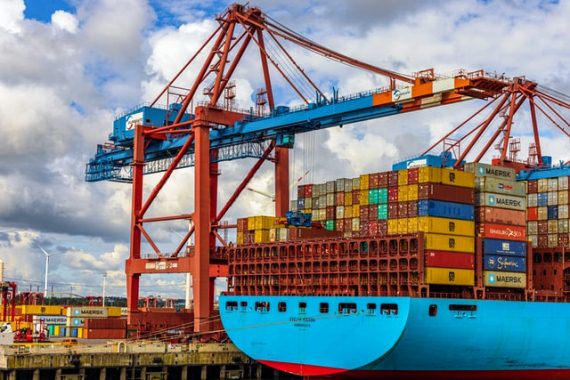
- Commercial shipping suspended at Ukrainian ports following Russian invasion. Russia also suspends maritime movement on Azov Sea until further notice
- Suspensions spark concerns about supply disruptions among grain and oilseeds exporters. Shipping companies make adjustments to their routes and schedules
- Invasion likely to cause trouble in energy, food, transport, metals and microchips supply chains
Russia’s invasion of Ukraine on February 25 has prompted the Ukrainian military to suspend commercial shipping operations at the country’s ports, and so has the government in Moscow on maritime movement on Azov Sea until further notice.
The suspensions have raised concerns about supply disruptions among grain and oilseeds exporters and led shipping companies to make adjustments to their routes and schedules.
World shipping giant AP Moller Maersk advised its customers on Friday that it has stopped accepting bookings to and from Ukraine until further notice.
“…Our teams have been working around the clock to find solutions that suit our valued customers and their cargo. Your supply chain is of the utmost importance to us and we are doing all we can to keep things moving despite the circumstances,” Maersk said in a message to customers on its website.
Maersk said cargo currently en route to Ukraine is being planned for discharge in Port Said and Korfez.
The company offered relief packages for affected customers. These include free change of destination, subject to re-stowage and shifting cost; no cancellation fee on active bookings to and from Ukraine, and interim stop of the detention and demurrage clock for containers in Ukraine until March 3, with the firm taking responsibility for detention and demurrage.
Maripol, which Russia captured on Day One, is one of the biggest Ukrainian ports on the Azov. It exports wheat, barley and corn to Mediterranean importers. A prolonged shipping disruption would force these countries to look for alternative supplies.
Analysts say the war in Ukraine is threatening further disruption to already stretched supply chains, as Ukraine and Russia are essential suppliers of raw materials and energy for many crucial supply chains.
Analysts Sarah Schiffling and Nikolaos Valantasis Kanellosforecast that the invasion will likely cause trouble in five areas, namely, energy, food, transport, metals and microchips.
In their analysis published on Irish media RTE’s Brainstorm page, Schiffling and Kanellos said many European countries depend heavily on Russian energy, particularly gas through several vital pipelines, likely influencing their approach to the crisis.
Their reliance on Russian gas has been suggested as the reason Europe was reluctant to remove Russia from the international payments system SWIFT, for example. But Germany acted fast to suspend the new Baltic gas pipeline Nord Stream 2 indefinitely.
The analysts said even small disruptions will have a significant impact. Global gas reserves are low due to the pandemic and energy prices are arising spiking, hitting consumers and industry.
Food prices rose sharply in 2021 due to higher energy prices arising from climate change. Russia and Ukraine together account for more than a quarter of global wheat exports. Ukraine accounts for half of sunflower oil supply. If harvesting and processing or exports are blocked, importers will struggle to replace supplies.
Global transport could suffer problems due to the invasion. The transport modes likely to be affected are ocean shipping and rail freight.
Trains are being rerouted away from Ukraine, and rail freight experts are optimistic that disruptions will be minimal. But countries like Lithuania expect their rail traffic to be hit severely by sanctions against Russia.
The US has been threatening to cut off Russia’s supply of microchips. But this rings hollow as Russia and Ukraine are key exporters of palladium and platinum, three metals that are critical for microchip production.




